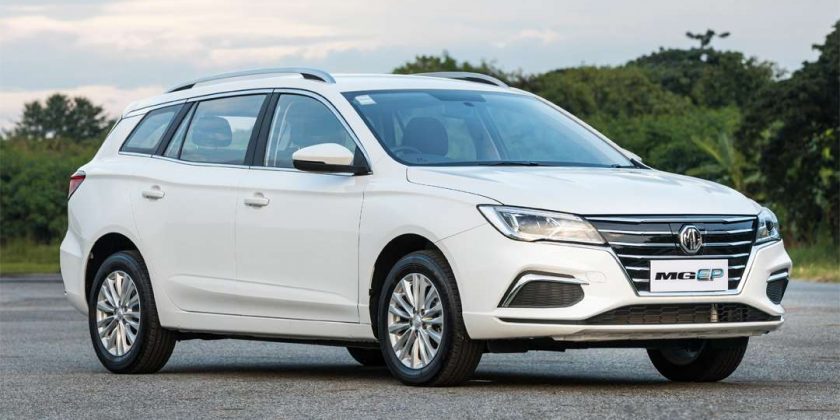The thing about many electric cars is that they’re a bit fancy, and we’re not talking about the tech beneath. In Malaysia, EVs generally have premium pricing and positioning, even after duty-free incentives. Perhaps only the Nissan Leaf and Hyundai Kona Electric can be considered as exceptions. Priced from RM150k, the latter is the cheapest EV on sale in Malaysia.
But over in Thailand, there’s a no-frills EV for the masses, and we’re not talking about those tiny Chinese two-seaters. The MG EP was launched in late-2020 with a price tag of below one million baht. That’s a full EV for 988,000 baht (RM124k), which is the starting price of the Honda Civic FE. And as a C-segment wagon, it’s practical and more spacious than a typical family sedan.
With the Thai government’s recently announced EV incentives, the cheap EV is now even cheaper. The MG EP gets a 227,000 baht (RM28,597) price reduction, which means that it now starts from 761,000 baht, which is RM95,853. Like before, there’s a higher-spec EP Plus for 10k baht more – 771,000 baht or RM97,122. Before this, the MG EP was an EV priced below 1m baht; now, it’s truly an EV priced below RM100k.
The specs are decent. A single electric motor with 163 hp/260 Nm powers the front wheels via a single speed transmission. The 0-100 km/h sprint is done in 8.8 seconds and top speed is 185 km/h. That’s the level of the just-launched RM278k Mercedes-Benz EQA, which does the century sprint in 8.9 seconds and a top speed of 160 km/h.
The EP’s battery, located in the floorpan of the wagon (2,665 mm wheelbase, 464L boot, up to 1,456 litres with rear seats folded) is a 50.3 kWh lithium-ion unit that provides up to 380 km of range, although this is in the older NEDC cycle. The base 39.2 kWh Kona Electric is rated at 305 km in the WLTP cycle.
The CCS2 charging port is hidden behind the MG logo on the grille. Charging with the supplied home wallbox charger at 7kW AC takes seven hours and 15 minutes for 0-100%. 50kW DC fast charging will top up an empty battery to 80% in 40 minutes.
MG Thailand says that home charging costs around 200 baht (RM25) per full charge, and maintenance costs over five years (or 100k km) will not exceed 8,000 baht (RM1k). These figures are touted, because this is an EV for normal people, so to speak, and regular motorists care about running costs more than a Taycan owner with a five-car garage. The warranty is four years or 120,000 km, but the EV battery’s separate warranty is for eight years or 180,000 km. Battery modules can be replaced separately if needed.
In case you didn’t know, MG was born in England but is now a brand of China’s SAIC, and the Thai-market EP is actually a rebadged Roewe Ei5, which has been around since 2017. If you’ve seen Roewe cars in China, this is quite an obvious rebadge as the wagon’s face has Roewe’s “VW look” as opposed to the curves and “Mazda-look” we’ve come to expect from MG. The EP is also sold as the MG5 EV in the UK and serves as a taxi in Singapore.
Nothing kayangan at all about this simple, practical EV wagon. What do you think of the MG EP and would you consider one if it was priced below RM100k in Malaysia?
Source: Read Full Article




